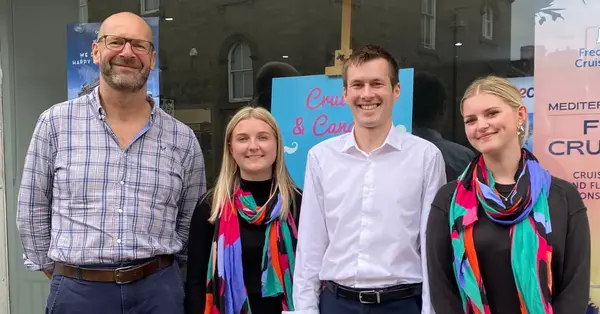You are viewing 1 of your 2 free articles
Special Report: How you can play your part to help industry fight fraud
For the travel industry to effectively crack down on fraud, there needs to be a long-term approach to track and alert firms of potential fraudsters operating in the sector.
Reporting a fraudster to the police is vital but it is not the only way travel firms can help combat the problem, according to Barry Gooch, chairman of anti-fraud group Profit.
In 2018, the industry’s first and only intelligence database, the Fraud Intelligence Network, created an industry standard to vet agents applying to join an organisation and ensure fraudsters could not trade and switch between consortia.
Database
Five years on, its successor system, the Intelligence Hub, is even more sophisticated, but it needs more members to be truly effective.
The encrypted database is GDPR-compliant and contains thousands of records and information on fraudsters, both those pretending to be genuine customers and those operating as bogus agents. It allows users to add details of confirmed fraudsters in a legal and secure way.
: Special Report: Be aware of the warning signs when spotting fraud
Special Report: Fraudsters ‘find weaknesses to exploit in travel security’
Gooch said: “In essence, this system is about working together to counter fraud in a lawful and effective way. It is a system designed by the travel industry for the travel industry.”
He added it is not “a blacklist”, rather an easy-to-use information tool to help travel firms make business decisions.
“We are not telling people not to do business with these people [in the database]. We are just giving people additional information,” he said.
The Intelligence Hub’s business module allows firms to search individuals and companies; for example, to run checks on new applicants or business partners.
This could prevent convicted criminals from “consortia-hopping”.Bogus agents jailed in recent years include Lyne Barlow and Rita Hunter.
Searches not only scour the database but also search other sources including Companies House and Creditsafe for relevant data such as disqualified directors, insolvency and bankruptcy.
Complementing this is a payments module, which allows travel firms to check potentially fraudulent transactions based on searches using information, including email addresses. This means clients’ details can be fraud-checked, manually or automatically, during the booking process, said Gooch.
He added: “Most travel companies will get the best benefits from the payment module which searches transactions.”
Matrix
What else can firms do? Profit also recommends travel companies create a risk matrix for their business. This can be a simple table of the common frauds that take place against the company and is compiled by looking at the last 10 or 20 fraudulent bookings and identifying common features.
This will help firms to detect future potential frauds in their own businesses and help those using the Intelligence Hub to know which transactions to search.
The Intelligence Hub in brief
To find out more, email: admin@montague-sykes.co.uk |
How to report a fraud
Action Fraud is the reporting centre for economic and cyber crime in the UK (except Scotland, where reports should be made to Police Scotland on 101). It is part of the National Fraud Intelligence Bureau at the City of London Police.
• Individuals and businesses can report a suspected fraud through an online form at actionfraud.police.uk/home or by speaking to a fraud adviser on 0300 123 2040.
• Reports are entered into a database and if they meet certain criteria could form part of a ‘package’ sent to a police force for investigation.
: Special Report: Be aware of the warning signs when spotting fraud
Special Report: Fraudsters ‘find weaknesses to exploit in travel security’


















